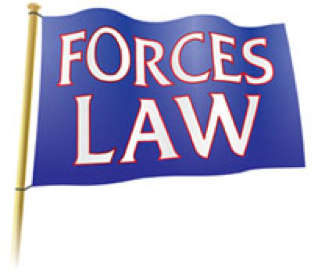Specialist Family Law Solicitors
Just like divorce, annulment is a way to legally finish a marriage.
Annulment of divorce is, however, highly unusual and can only occur in very limited situations. As a result, very few divorce solicitors ever come across it.
Typically, in order to qualify for an annulment your marriage needs to be legally invalid. It might have been legally invalid from the beginning or it might become legally invalid further down the line.
Are there any limitations on annulment of marriage?
Unlike divorce, you don’t have to wait until the first anniversary of the divorce before making an application. You can make your application for annulment any time after the marriage ceremony took place.
Please note that if you’re filing for annulment because you married when you were under 18, the aplication must be made within 4 years of you turning 18.
Why might I consider an annulment?
There are various reasons you might need to consider an annulment for your marriage. The grounds are different from divorce– however like getting divorced, you need to establish a reason to get your marriage annulled.
What is the difference between a void and voidable marriage?
Admittedly it does sound rather technical, but it’s not too complicated.
To prove a voidable marriage, an application to court is required for the annulment – which is at the discretion of the judge, who will normally require powerful evidence.
Examples of reasons for voidable marriages include:
- the marriage wasn’t consummated ie you have not had sexual intercourse with the person you married since the wedding,
- a forced marriage
- one party couldn’t consent because of mental health difficulties
- your spouse was pregnant by someone else before the wedding
- the other spouse had a sexually transmitted disease when you got married
A void marriage is different. The law treats the marriage as if it was not legally valid in the first place – as if it the marriage simply never took place.
Examples of void marriages include:
- being too closely related to the person you married e.g. you married your uncle
- if either of you were under the age of 16
- if either of you was already married at the time, or in a civil partnership
Our senior partner, Tim Bishop, when he was still a practising divorce solicitor, once came across an application for annulment on the basis that the bride was too drunk to consent. This can be grounds for annulment.
Do I have to go to court?
Yes, you will need to make a court appearance in order to qualify for an annulment. You family law solicitor will be able to advise you on this when the time comes and they’ll also be able to assist you in gathering all the necessary evidence you might need in order to prove that your marriage is invalid.
If the case is contested by your spouse then you might need to make more than one court appearance, depending on how long the case goes on for. Sometimes, cases can be long and complicated so you should be prepared for this when seeking an annulment, just in case any issues do arise with your case.
As these situations are often emotionally sensitive and difficult for people, it is important that they are handled properly. Good legal advice from an experienced family law solicitor will help to guide you through the process, making sure you know your options and that you informed about what is going on at every step of the way.
How long does annulment of marriage take?
The length of time an annulment takes will depend on your particular case. You might find that it takes longer than average if your spouse objects to the annulment. On average, the process can normally be expected to take between 6 and 8 months as long as the case is not contested.
Did the changes to divorce came into effect in April 22 affect annulment?
No – the Divorce, Dissolution and Separation Act, which finally brought in no-blame divorce, had no effect on an annulment.
Thinking of annulment? Looking for Specialist Family Law Solicitors? Contact us now
Don’t suffer in silence. Find out where you stand today. We represent clients throughout England and Wales and offer free initial advice over the phone.
To find how our Family Law Solicitors can help, phone our family team on one of our local or FREEPHONE numbers:
- SALISBURY 01722 422300
FORDINGBRIDGE 01425 652110
AMESBURY 01980 622992 or
ANDOVER 01264 364433
Call FREE on FREEPHONE 0800 1404544 or
- E-mail us using the online enquiry form below













